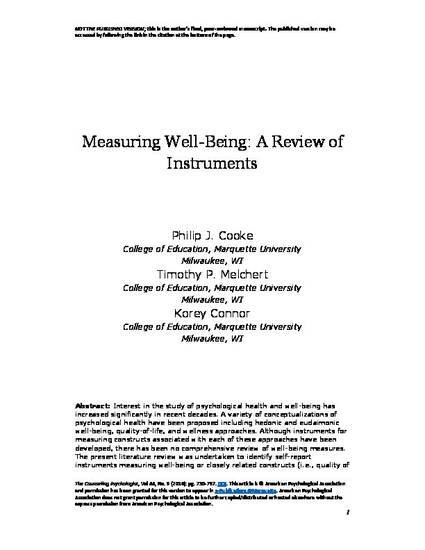
Interest in the study of psychological health and well-being has increased significantly in recent decades. A variety of conceptualizations of psychological health have been proposed including hedonic and eudaimonic well-being, quality-of-life, and wellness approaches. Although instruments for measuring constructs associated with each of these approaches have been developed, there has been no comprehensive review of well-being measures. The present literature review was undertaken to identify self-report instruments measuring well-being or closely related constructs (i.e., quality of life and wellness) and critically evaluate them with regard to their conceptual basis and psychometric properties. Through a literature search, we identified 42 instruments that varied significantly in length, psychometric properties, and their conceptualization and operationalization of well-being. Results suggest that there is considerable disagreement regarding how to properly understand and measure well-being. Research and clinical implications are discussed.
Available at: http://works.bepress.com/timothy-melchert/26/

Published version. The Counseling Psychologist, Vol. 44, No. 5 (2016): 730-757. DOI. © 2016 Division of Counseling Psychology of the American Psychological Association. Used with permission.